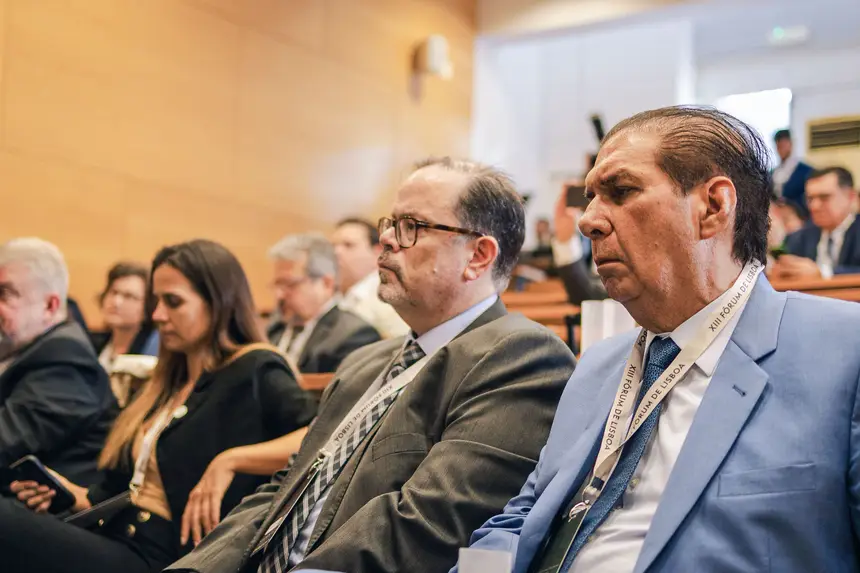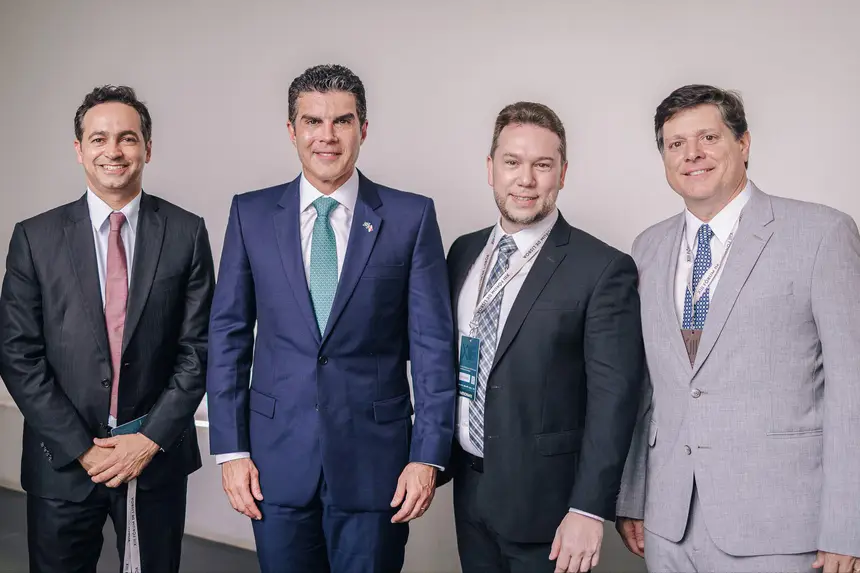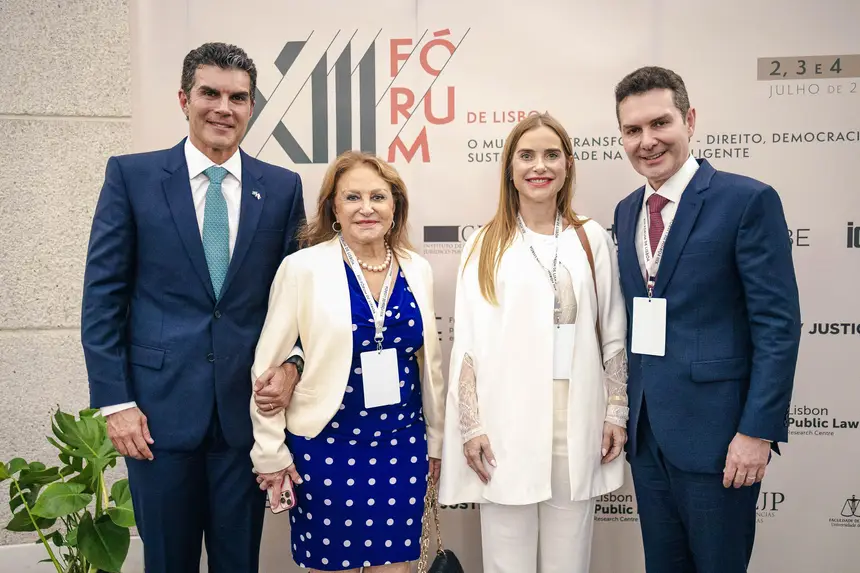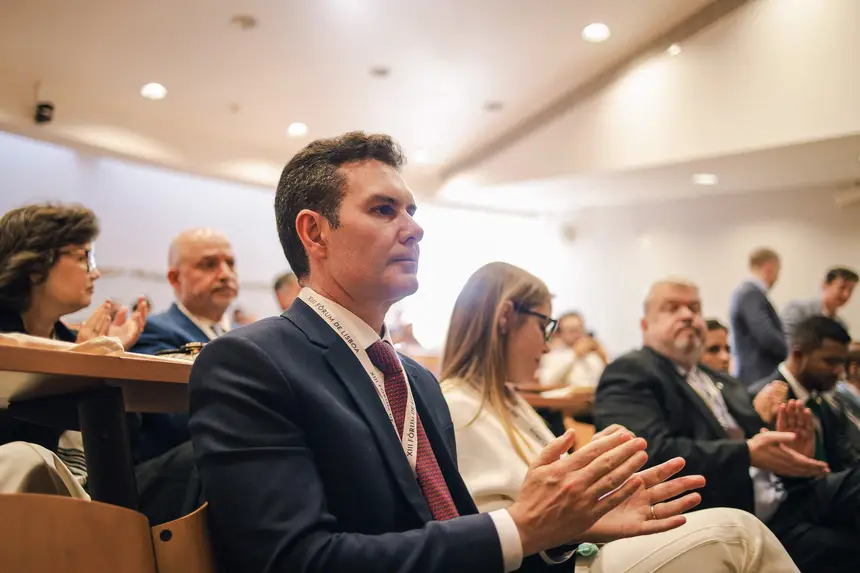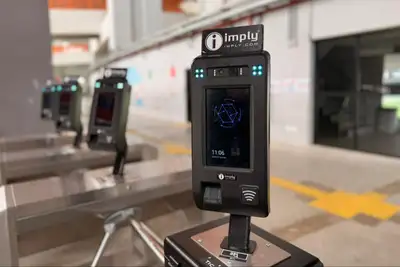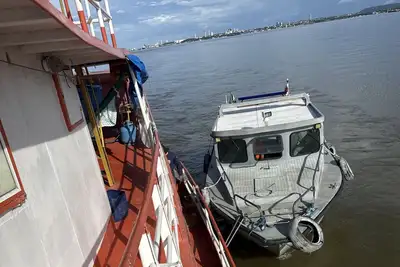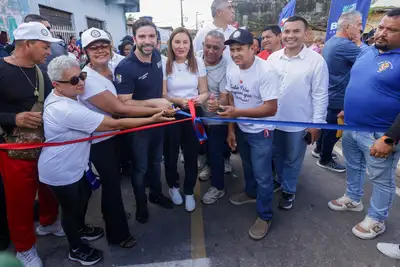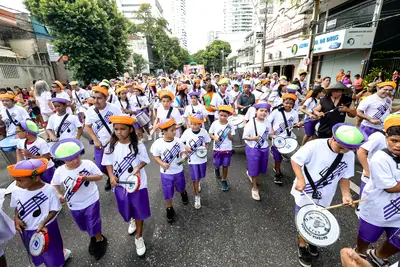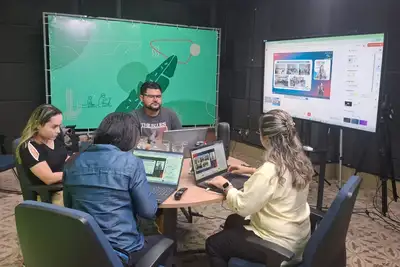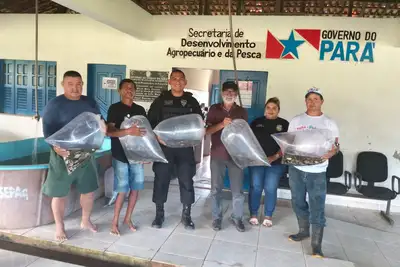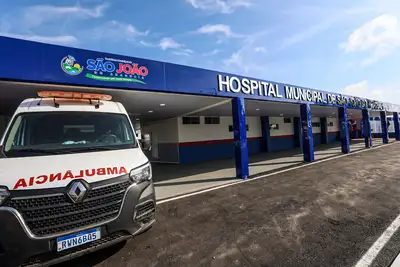In Lisbon, Helder Barbalho reaffirms Pará's commitment to new concessions for reforestation in 2025
The governor presented reforestation goals, deforestation reduction, and bioeconomy initiatives of the state, which will host COP30
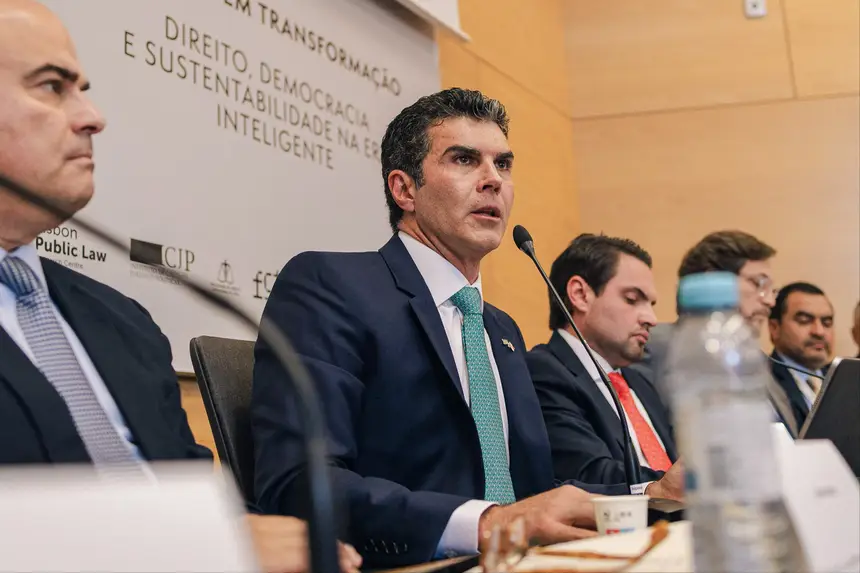
The governor of Pará, Helder Barbalho, reaffirmed, this Wednesday (2), during his participation in the 13th edition of the Lisbon Forum, the state's commitment to the recovery of degraded areas, through two new concessions for reforestation still in 2025. At the event, the head of the state executive highlighted that the State aims to recover 5.7 million hectares by 2030, almost half of the national commitment, and that, to fulfill it, has made a call to the private sector.
"We made Brazil's first successful concession, in which, through an auction on the São Paulo Stock Exchange, we granted 12 thousand hectares in the APA Triunfo do Xingu, which is very symbolic, between São Félix and Altamira, as it is the environmental protection area in Brazil that suffers the most pressure from deforestation. And this was an absolute success, so much so that, still this year, we will make two new concessions, totaling more than 30 thousand hectares," reinforced the governor.
On the occasion, Helder also highlighted that: "this is certainly a beacon to encourage other entities of the federation and also the Brazilian government to mobilize so that the private sector can be responsible for this process of recovering the forest stock, based on an economic activity."
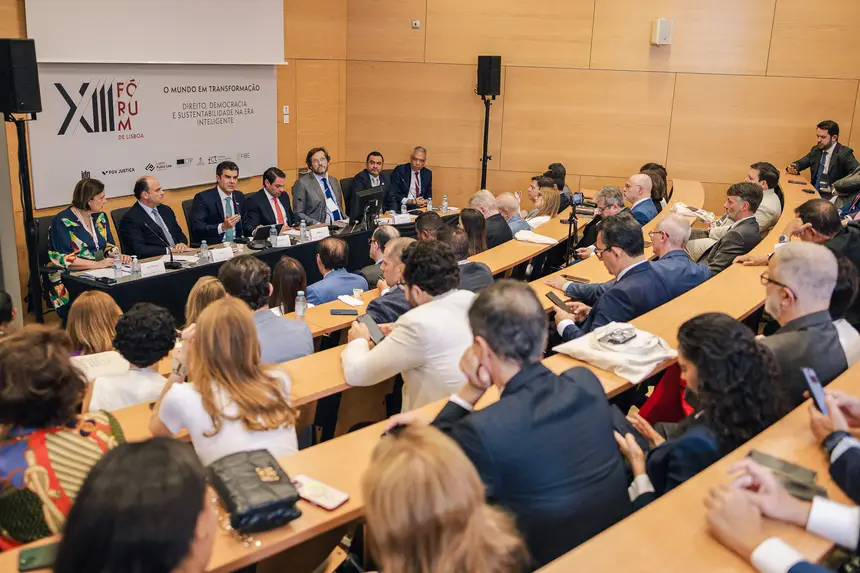
The event, which brings together academics, managers, specialists, authorities, and representatives of organized civil society from Brazil and Europe, is organized by the Brazilian Institute of Education, Development, and Research (IDP), the Lisbon Public Law Research Centre (LPL) of the Faculty of Law of the University of Lisbon, and the Center for Innovation, Administration, and Research of the Judiciary - FGV Justiça (FGV).
The governor participated in the panel "Environmental Governance and Green Agenda: innovation for the 21st century," alongside names such as Maria Tereza Uille, collaborator of the Presidency of the National Council of the Public Ministry; Marcelo Martins, CEO of the bioenergy company Cosan; Bruno Machado Ferla, vice president of M&A, Legal, Compliance & Governance of BRF; Caio Cordeiro Resende, director of IDP; the governor of Tocantins, Wanderlei Barbosa Castro; and Luiz Lessa, president of the Bank of the Amazon. The mediation was conducted by lawyer Jorge Galvão.
Present were Senator Jader Barbalho, Deputy Elcione Barbalho, Minister of Cities, Jader Filho, and the president of MDB, Baleia Rossi.
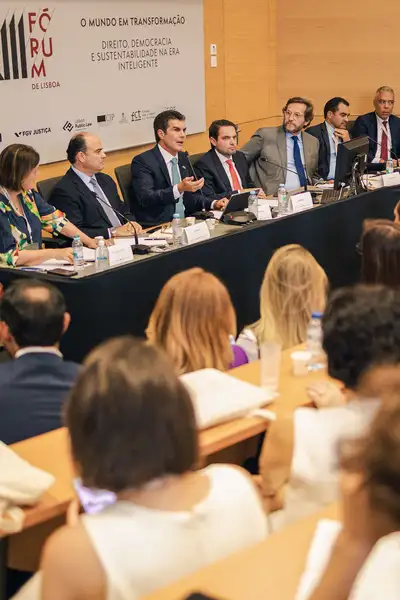
Regarding Brazil's challenges in the sustainability agenda, the governor of the state that will host the next United Nations Climate Conference on Climate Change, COP 30, stated that the country has the opportunity to be a reference.
"The theme of this panel certainly addresses one of the greatest challenges Brazil faces in proposing to lead the sustainability agenda in the world, and it must do so. This is a great opportunity that Brazil has to be a reference based on the practices it already exercises, and it must value these practices, lest it become hostage to narratives that attribute to the country the responsibility and leadership for climate balance, based on the wealth of the biomes existing in our territory."
According to him, "more and more, the world will place climate and environmental integrity as a necessary value for private activities, as well as for the protocols of public institutions. And the State of Pará sought, starting in 2019, to turn the page and build a new chapter in its history. Over time, Pará was the main emitter of greenhouse gases among the 27 units of the federation, with 95% of its emissions coming from land use."
Helder Barbalho recalled that, starting in 2019, Pará adopted structural measures to tackle deforestation and climate change, such as the creation of the State Policy on Climate Change and the State Plan Amazônia Agora, aimed at changing land use in the Pará territory, and highlighted positive results in combating deforestation.
"We still have a Herculean challenge, but we have reduced deforestation by more than 50% in absolute numbers. And this has been compatible with a new perspective on the degraded areas of the state and a new green economy, reconciling agriculture, livestock, and forest. Based on the success of command, control, and inspection actions, we needed to find an exit door for land use, to balance the need for employment, income, and therefore, the social impacts, which have traditionally been the result of extractivism in our state."
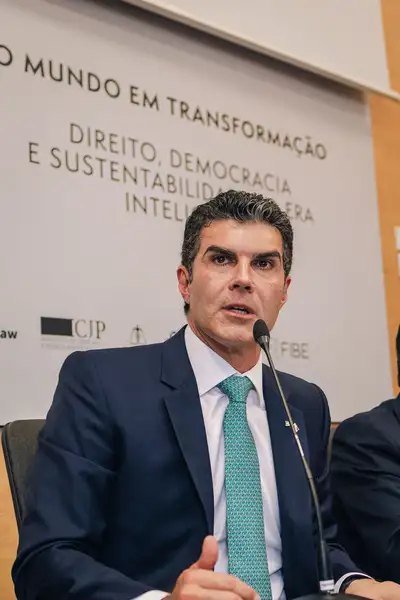
Sustainable livestock and bioeconomy
Helder Barbalho shared with the event audience the successful experiences that the state has had with the implementation of low-carbon economic development policies.
"Pará today is an example. It is the only state in Brazil that proposes to have 100% of its cattle herd with individual identification, each of the 26 million heads of cattle identified individually, with the animal's history, from birth to slaughter, to show that the chain, the life, and the history of the animal take place on regular properties. We created the State Bioeconomy Plan and now, at COP30, we will deliver the first bioeconomy park in the Amazon, a large center for startups, for unicorns, so we can provide the necessary support to those who already do bioeconomy and need the incentive, the induction of the State, to consolidate this new vocation, at scale, for the Pará economy," said the governor.
The governor also mentioned the construction of Pará's REDD+ system, which is underway, as well as the process of Free, Prior, and Informed Consultations (CLPIs) with traditional peoples and communities, which is being conducted.
"There is no climate justice without social justice. And that is what we want to build. The opportunity to host COP30 is certainly a global call for the world to come debate climate, environmental urgencies, with feet on the ground of the forest, listening to the Amazonians, listening to Brazilians and pointing to a solution for tomorrow. And this should happen in Belém do Pará. I take this opportunity to invite everyone to join us in building this historic moment in favor of Brazil and the planet," concluded Helder.
At the end of the panel, moderator Jorge Galvão thanked the governor for his participation with content on sustainable policies. "I would like to thank the governor of Pará. It is a privilege to have, here at the Lisbon Forum, a governor who will host COP30 and has blessed us with perspectives on the sustainability agenda and public policies of the State of Pará, related to sustainable economic activities."
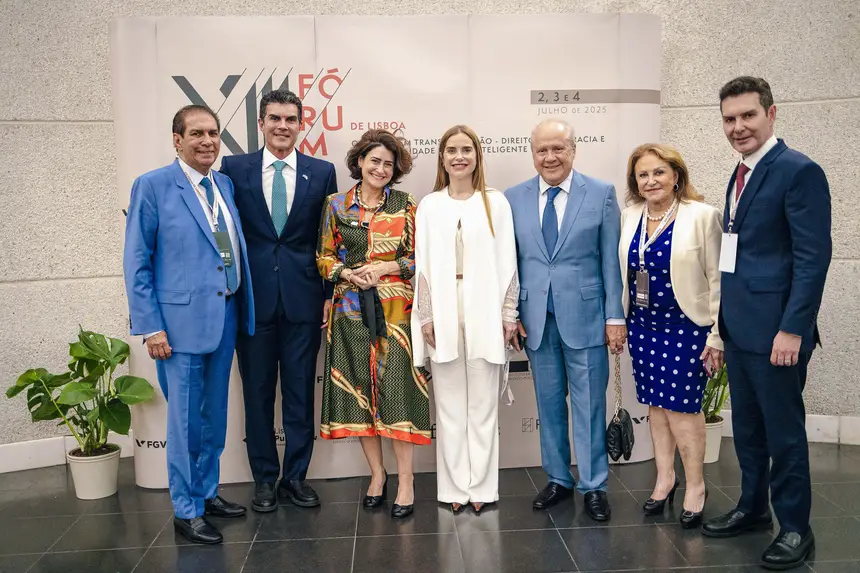
The event - The Forum takes place annually with the aim of discussing issues that challenge the contemporary State. In 2025, it addresses an overview of how technology and artificial intelligence impact different fields and the effects in Brazil, Europe, and the world. With transversal themes, it seeks greater understanding of the challenges of the current world, such as climate change, human rights, public policies, international institutions, among others.
The event was held at the Faculty of Law of the University of Lisbon (FDUL), in Portugal, and focused on promoting dialogues on how the advent of the Intelligent Era has impacted relations between States, institutions, companies, and peoples.



